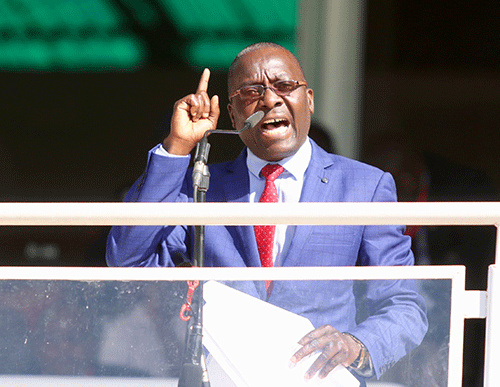SWAKOPMUND – Unwarranted political interference in the administrative operations of regional councils, poor services, cases of mismanagement as well as conflict between councillors and officials have prompted the Urban and Rural Development Ministry to amend the Regional Councils Act 1992 (Act No. 22 of 1992).
Governors, councillors and chief regional officers as well as officials from the ministry have thus attended a two-day consultative workshop in Swakopmund to discuss and validate such amendments to the Act.
Speaking during the opening of the workshop, urban and rural development minister Erastus Uutoni said the Act gives power to the regional councils as a political body.
They can thus decide on or be involved in administrative matters relating to the management of human resources such as disciplinary actions against staff members, the appointment of staff members as well as an acting chief regional officer.
However, Uutoni said a number of challenges have been reported in this regard, and in order to address these challenges, the ministry saw a need to review and amend certain provisions of the Act.
“While legal instruments such as the Regional Councils Act are in place, we know too well that such a law was enacted some years back. While it underwent some amendments already, it brought new challenges and obligations. Therefore, we need to respond by making amendments to the existing laws such as the Regional Councils Act,” he added.
According to the minister, the regional councils as a sector have not really been working together in harmony as reports of poor service, mismanagement as well as conflicts among councillors and officials are reported to his office.
The human resources administration in regional councils is administered in terms of sections 23 and 24 of the Regional Councils Act, which adopted several provisions of the Public Service Act, 1980 (Act No.2 of 1980), as amended.
“The Public Service Act, 1980 on the other hand contains provisions that have been found to render human resources administration too cumbersome, not user-friendly and in some instances inadequate for enabling the effective administration of the HR functions in regional councils. In addition to the above, the existence of different Acts that are used to manage human resources at the regional councils and the central government levels is another challenge. This situation has resulted in different and incorrect interpretations and applications of the laws in question,” the minister stated.
The other issue that has necessitated a re-examination of the current Regional Councils Act is the concern about unwarranted political interference in the administrative operations of regional councils.
Also speaking at the same workshop, deputy director of legislation and policy development Aletha Hiiko said many challenges have been experienced over the years with the Act. She said they realised that different legislations are applicable with regards to the management of human resources at both regional council and central government level.
“Various gaps and challenges have been identified in the administration of the Regional Councils Act. Another challenge was the provision made into the boundaries, delimitations and demarcations as a result of the amendment of the constitution. The legal framework is thus rather complex and needs to be reviewed, hence the suggestion to amend the Regional Councils Act in order to address the identified challenges,” she noted.
Hiiko indicated that they will incorporate the relevant comments and draft the amendment that will be submitted to the ministry for further input and validation.



